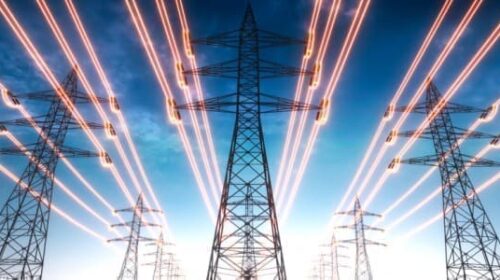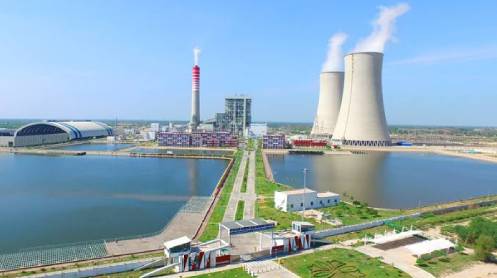Pakistan is presently in the midst of one of the worst economic crises in its history. High inflation, large twin deficits, dwindling forex reserves, fast weakening currency, and elevated Eurobond yields were all symptoms of an economy in severe distress.
This is the consensus of this open letter written to all the politicians and the authorities by the country’s eminent economist, former and present heads of prestigious institutions, and technocrats.
Pakistan’s external and fiscal finances are crumbling under the overwhelming weight of energy costs. The share of imports, which was 43 percent of total primary energy supply in FY2020, has been continuously increasing. At more than $26 billion, energy imports (oil, LNG, and coal) were the single biggest contributor to Pakistan’s current account deficit of $17.4 billion in FY2022. It is tragic that a country endowed with large fossil fuel reserves and huge renewable resources meets more than two-fifth of its energy needs through imports.
Decades of misguided policies have fostered energy inefficiency and favoured imports over development of indigenous energy resources. Misgovernance and policy failures have created a monster in the form of circular debt which has devoured trillions in budgetary resources and yet there is an outstanding circular debt stock of over Rs3.2 trillion in power and gas sectors combined.
National dignity and security are compromised with each economic bailout that we seek from our close friends, international donors, and multilateral lenders. As the nation celebrates the diamond jubilee of its independence, we must take a moment to introspect as to why our country has failed to achieve economic sovereignty in the last 75 years?
Fortunately, the energy sector has the potential to swing from being the biggest burden on the country’s economy to propelling it towards economic security and prosperity.
This course reversal, however, will require unflinching commitment by our leaders and decision-makers to energy sector reforms in the face of inevitable resistance from the current beneficiaries and deeply-entrenched vested interests. Just as national security transcends politics, there is a dire need for non-partisan commitment and support for energy sector reforms. Below we offer a high-level blueprint for the critical reforms to transform the energy sector into a vibrant contributor to power the economic and social development dreams of our nation.
Overhauling governance & building institutional capacity
Excessive government involvement is the central cause of the present state of affairs of the energy sector. For the sector to function properly, it must be decentralised and deregulated. The energy ministry’s role must be restricted to policy making and not actually running the energy sector entities. The energy ministry needs to be staffed with professionals with relevant sector knowledge and experience.
NEPRA and OGRA must be turned into first class regulatory bodies manned with professionals. There should be a formal mechanism for coordination between the two regulators and considering the growing convergence in the energy sector with increased electrification, a transition towards unified energy regulator may also be considered.
The top commissioners/members must be appointed based on their professional competence, integrity, and relevant experience instead of being political nominees.
The institutional capacity of NEPRA and OGRA should be enhanced making them more progressive and strong regulators entrusted with ensuring supply of reliable and affordable energy, while maintaining high standards of efficiency in the system.
Public Sector Entities (PSEs) that are not to be privatised should be made autonomous, not just on paper but in reality. Fully autonomous integrated petroleum state companies are very successful in other parts of the world while competing with the private sector at equal footing and can undertake strategic energy projects, which the private sector will shy away from. So, while most PSEs can be privatised, some may have to remain within the state domain but without bureaucratic controls.
Energy conservation
Immediate relief to Pakistan’s external and fiscal finances can only come from adherence to strict energy conservation measures. A five percent energy savings would reduce the energy import bill by 12 percent or over $3.0 billion. The ongoing turmoil in the global energy markets is taking a heavy toll on even the most secure economies in the world forcing them to adopt unprecedented measures to reduce energy consumption. Disregard for energy efficiency has made wasteful consumption endemic in the system.
The following instant measures can help achieve meaningful reduction in energy consumption: i) introduction of daylight saving timing by moving clocks forward by at least one hour, ii) closure of shopping centres by 7.00 PM and restaurants/wedding halls by 10.00 PM, iii) closure of bank branches by 2.00 PM, iv) closure of all public/private offices at 5.00 PM, v) reduction of school working days to four per week with longer hours per working day, vi) keeping minimum temperature setting for air-conditioning at 26 degrees in all public and private offices, and vii) switching off alternate streetlights.
While there will be resistance and push back from traders and businesses against the energy conservation measures proposed above, the successful enforcement of health measures during the first year of COVID-19 proved that if there is strong political will, the governments can ensure compliance with mobility restrictions and early market closures and people adjust their shopping habits without causing any loss to the businesses.
Harnessing indigenous resources The need for exploiting Pakistan’s domestic energy potential cannot be overemphasised. Imports met 80 percent of oil, 73 percent of coal, and 24 percent of natural gas supplies of the country in FY2020. Domestic natural gas production peaked at 4,250 MMCFD in FY2012 and has fallen by more than 21 percent over the last 10 years. Domestic oil production peaked at 94,500 BPD in FY2015 and has since dropped by 19 percent. Bureaucratic delays, security risks and dissuasive wellhead pricing regime are major obstacles to increasing domestic production from existing gas fields and to more aggressive exploration activities. Reallocating unused gas commitments, encouraging third party sales at bilaterally negotiated prices and increasing wellhead prices for older fields and tight gas reserves can significantly increase natural gas production in the short term.
Public sector companies are the biggest players in the upstream oil and gas sector but there has been a noticeable lack of effort by these companies to arrest the country’s rapidly declining production streams. This slackness has, in part, resulted from unwarranted interventions and often unfair actions by accountability institutions, which have hurt, and in some cases killed, the morale and motivation and initiative at public sector institutions. We must regain the trust and confidence of public sector decision-makers to encourage them to take initiatives and risks without having to worry too much about the consequences of their decisions. The government should form independent committees comprising professionals with relevant knowledge and expertise who should evaluate complaints of indiscretions and only cases approved for further investigations by these committees should be investigated further by the relevant accountability institutions.
Expansion of Thar coalfields should be a national priority. Having potential reserves of over 175 billion tonnes, Thar coal alone can substitute the country’s coal imports of over 19 million tonnes costing almost $3.0 billion annually. With international coal prices at record levels, Thar coal can help cut the cost of production for the large coal consumers, namely, cement and power generation. Increasing mining capacity, setting up coal processing plants and connecting Thar with the Pakistan Railways network should be carried out on a fast-track basis. Gasification of Thar coal can help compensate for declining domestic natural gas supplies with increasing risks to local fertiliser production. All these projects can be carried out by the private sector and the government simply needs to act as a facilitator to help the private sector capitalise on the opportunities that Thar coal holds.
Pakistan is blessed with huge potential of renewable energy resources including hydro, wind and solar. The country holds over 40,000 MW of unharnessed hydroelectric potential. While hydroelectric plants require several years to construct, solar and wind projects can be developed within 6 to 12 months and also in a modular manner to fit more precisely with the demand projections. The Gharo-Ketibandar corridor alone has an exploitable power generation potential of more than 60,000 MW. Chaghi (Balochistan) also possesses excellent wind and solar potential. According to the World Bank, utilising less than one-tenth of one percent of the country’s area for solar PV (photovoltaic) power generation would meet Pakistan’s current electricity demand. Moreover, achieving a least cost electricity mix in Pakistan would require a rapid expansion of VRE (solar/wind), reaching at least 20 percent of installed capacity by 2025, and at least 30 percent by 2030, as per World Bank study.
Conversion of existing wind farms to wind/solar hybrid models should be allowed where it is economically feasible. Expansion of rooftop solar installations can be further accelerated through financing schemes and ensuring faster net-metering approvals. Private investment in export-oriented green hydrogen projects should also be encouraged by offering fiscal incentives and development of energy parks in suitable coastal locations.
Setting up a state-of-the-art refinery with integrated petrochemical complex is another key requirement given the present redundant inefficient refinery infrastructure and the need for substitution of imported petroleum products. Refining of imported crude saves dollars and can even earn foreign exchange through exports as refined products sell at premium to crude oil. Global shortage of petroleum products has seen record price levels for diesel and gasoline in recent months resulting in added burden on Pakistan’s fragile external account.
Electrification of energy use
Out of the 80.6 million TOEs of Pakistan’s primary energy consumption in FY2020, 50 percent went into electricity generation, 21 percent in transportation and 11 percent in the residential sector. With rapid technological advancements, electricity’s role is rapidly expanding in meeting the energy needs for transport, process heating demand in industries, and space and water heating. Electrification of energy use and increased reliance on domestic resources, in particular from renewable resources, for electricity generation shall reduce the energy imports, while contributing to the country’s GDP growth.
China’s Shenzhen city offers a model for conversion of its entire public transport system of buses and taxis to electric vehicles in a short period of time. The same can be replicated in major cities of Pakistan beginning with Karachi to address the lack of decent public transport and growing pollution. Hybrid wind/solar farms could be set up to power the electric buses by wheeling electricity through KE’s network.
Given the rapidly shrinking domestic gas production, high UFG in distribution networks, low efficiency of natural gas appliances and to encourage the shift towards electrification, the supply of piped gas to households should be phased out gradually. Only less than 30 percent of the country’s population and that too in urban areas, has access to pipeline gas. The rest relies on biomass, wood, and LPG.
Use of natural gas should be eventually restricted to power generation and industry. Time-bound plans should be put in place to shift residential consumption of natural gas to electricity or LPG and conversion of all public transport and passenger cars to Electric Vehicles (EVs).
Energy efficiency and removal of price anomalies
From production to consumption, Pakistan’s entire energy chain is riddled with inefficiencies and wasteful practices. Abysmally inefficient power plants continue to operate, wasting precious and fast-dwindling natural gas reserves. Large quantities of diesel are consumed in moving petroleum products by road and ironically even water is supplied to many parts of large cities including Karachi via tankers. Building code and appliance energy standards are not enforced. Moreover, energy price anomalies, especially the supply of massively subsidised natural gas to households and industry, encourages wasteful use of the commodity.
To reduce energy inefficiency in captive power generation, minimum thermal efficiency standards for different fuels should be defined and enforced. Moreover, a uniform gas tariff should be charged to all natural-gas-based IPPs (independent power producers) except those being supplied by low BTU gas fields.
Oil pipeline networks should be expanded to reduce road transportation of petroleum products. Moreover, water supply infrastructure in the country’s large cities should be revamped to ensure supply of water via pipelines.
A national effort is required to create awareness and enhance capacity for energy efficiency in the construction industry. In addition, development and enforcement of new efficiency standards in manufacturing household and industrial appliances to reduce consumptive load requirements.
Prices are the biggest motivator for energy conservation and efficiency improvement efforts. On average, the natural gas price for domestically produced gas is about 50 percent lower than the cost of supply and much cheaper than the imported LNG and other energy substitutes. Abysmally low gas tariffs for domestic categories encourage wasteful consumption by households that constitute the biggest consumer category. Industrial tariffs for domestically produced gas are also very low and hence provide little incentive to energy efficiency.
There is an immediate need for rationalisation of natural gas tariffs by implementing Weighted Average Cost of Gas (WACOG) and eliminating all explicit and implicit natural gas subsidies. This will help arrest the build-up of natural gas sector circular debt and encourage energy conservation and efficiency. Only targeted subsidies should be provided to deserving households through subsistence schemes.
Deregulation and privatisation
Competitive markets, if designed and operated properly, perform much better than regulated industries. Pakistan has a successful track record of deregulation and privatisation. With improving service standards and efficiency, consumers turn out to be the biggest beneficiaries. Telecom and banking sectors are clear examples. K-Electric, the only privatised power utility, reduced its T&D (transmission and distribution) losses from 37.8 percent in FY2005 to 17.5 percent in FY2021.
Deregulation of price controls and privatisation of energy sector PSEs is the most logical path to achieving energy sector sustainability in Pakistan. Unwarranted fears about the cost of stranded assets to the government are used to stymie progress towards competitive energy markets. The Competitive Trading Bilateral Contract Market (CTBCM) model must be implemented in letter and spirit. The gas markets should also be opened up on a similar model.
Transmission and distribution is the weakest link in Pakistan’s energy supply chain. High T&D losses and billing under-collection are the biggest contributors to the circular debt problem. Large investment is required in energy transmission and distribution (both in electricity and natural gas sectors) for rebuilding, modernising and expansion of energy networks in a short period of time. This is a task better left to the private sector.
Let’s make it Pakistan’s last economic crisis
While Pakistan has faced recurring economic crises throughout its 75-year history, the frequency and intensity of crises have been increasing in recent decades.
Moreover, there is a deepening sense of national despondency that we as a country are falling behind our regional peers that embarked on the journey as independent states at the same time as Pakistan or even later.
Pakistan is not a ‘resource-poor’ country but it has certainly been ‘leadership-poor’. All stakeholders in the system must realise that time is not on our side and we must set our house in order before it is too late. Pakistan’s energy sector has the potential to pull the country out of the economic tailspin. Let’s make the current economic crisis our last one by transforming the energy sector along the lines suggested in this note.
The following are the signatories of the open letter: Aamir Khattak, Security Analyst, Abdul Rehman Warraich, CFA, Ex-Director General, Debt Office, MOF, Dr. Adeel Waqas, Professor of Economics, NUST, Dr Ashfaque Hassan Khan, Principal, School of Social Sciences & Humanities, NUST, Asif Ali Qureshi, CFA, Ex-Member, Economic Advisory Council, Asim Riaz, Energy Specialist, Dr Athar Masood Ahmed, Professor of Economics, NUST, Faisal Bengali, Director, Sui Southern Gas Company, Dr Faisal Jamil, Associate Professor of Economics, NUST, Dr Fiaz Ahmad Chaudhry, Director, LUMS Energy Institute, Ex-Managing Director, NTDC, Javed Jadoon, Ex-General Manager, Mari Petroleum, Mansoor Ghayur, Ex-Head of Regulatory Affairs and Business Development, United Energy Pakistan, Mehran Mirza, Ex-Chief Executive, Premier Oil, Muhammad Ali, Ex-Chairman, SECP, Muhammad Jawaid Iqbal, CFA, Ex-President, CFA Society of Pakistan, Mohammad Razi Raziuddin, Energy Consultant, Mohammad Shahid, C-Level, Electric Utility Professional, Muqtadar Quraishi, Ex-Faculty Member, Cornell University, Adjunct Faculty, IBA, Naeem Yahya Mir, Ex-Managing Director, PSO, Natasha Jehangir Khan, Lawyer and Consultant, Power sector reforms, Saeed Qureshi, E&P Specialist, Ex-Director, OGDC, Shahid Hameed, Ex-Chief Executive, Spud Energy, Shamsuddin Shaikh, Ex-Chief Executive, Sindh Engro Coal Mining Company, and Engro Powergen Thar , Syed Faizan Ali Shah, Renewable Energy & Grid Integration Expert, Dr Zafar Mahmood, Principal, USPCASE, NUST.





